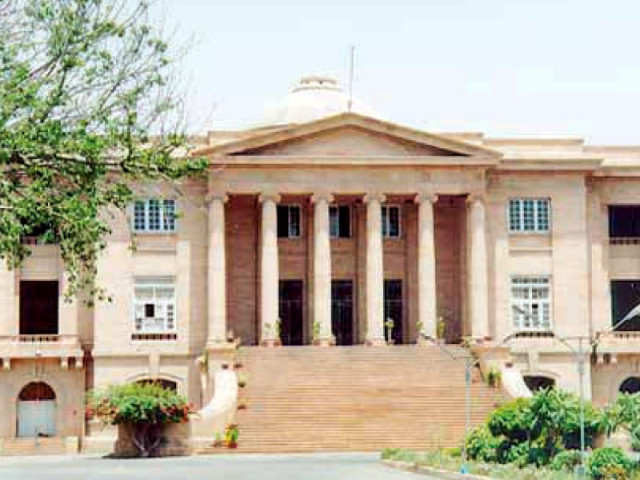Peasants dismayed as government mounts challenge to SHC order
Fear exploitation by landlords if Sindh Tenancy Act, 2013, is fully restored

As the Sindh government moves to challenge the Sindh High Court's 2019 judgment over peasants' rights in the Supreme Court, representatives of Hari Welfare Association (HWA), Sindh Hari Committee, Human Rights Commission of Pakistan and others have urged it to withdraw its plea.
The government's act had distressed peasants across the province, who fear exploitation by landlords if the Sindh Tenancy (Amendment) Act, 2013, is fully restored.
At a press conference in Hyderabad on Sunday, HWA's Akram Khaskheli reminded Sindh Agriculture Minister Ismail Rahoo of his promise to implement the SHC order rather than challenging it.
"The minister claimed he and his party believed in peasants' rights and he had denied the Sindh government would appeal the SHC's decision," he recalled, adding that the notices issued by the apex court on November 17 came as a surprise to them even though they had been concerned about the lack of implementation of the high court's directives.
The three salient provisions of the Act that were set aside by the judiciary pertained to peasants' registration, begar (free labour) and exercise of judicial powers by the executive to settle disputes between peasants and landlords.
According to the peasants' representatives, the provincial bureaucracy has argued it is in limbo about whether to implement the SHC orders or await the SC's verdict.
The Sindh government had filed a plea in the apex court for acceptance of its challenge to the SHC judgment in November 2019. In reaction, peasants' organisations had resorted to protests until Rahoo allayed their concerns by denying any intention to pursue the matter in January.
Judicial powers
In July 2019, the SHC's Hyderabad circuit bench had barred the executive from exercising judicial powers vis-à-vis matters concerning landlords and peasants.
The judgment stated that commissioners, assistant commissioners and additional commissioners did not have the authority to make judicial decisions, pointing out that such an exercise of power was ultra vires Articles 175, 202 and 203 of the Constitution.
The bench ordered the Sindh government to transfer relevant cases pending hearing under the Act's Sections 27, 29 and 30 to the district courts, giving the provincial assembly a month to amend Section 27.
"Not only have the pending cases not been transferred to the district courts, the new disputes which have arisen after July 2019 are not getting an appropriate forum for justice," said Khaskheli and Sindh Hari Tehreek's Samar Haider Jatoi.
Free labour
The 2013 Act had omitted the prohibition on free labour laid out in its predecessor Act of 1950 - which peasants as well as the SHC found to be a violation of Articles 11, 15 and 23 of the Constitution.
"…it has become unavoidable to show how legislatures have been unjust towards the haris [peasants] and even went on to include such an 'amendment', which is even against Article 8 of the Constitution," the bench had observed.
Though the 2013 amendment had legalised begar, the SHC pointed out that the apex court had earlier declared confinement or forced labour as being against the Constitution.
Peasants' registration
The SHC also ordered that all landlords would register their peasants with the revenue department, but this too has not been complied with.
It was also noticed that landlords have replaced the centuries-old sharecropping method, under which the peasants received part of the yield, with the agro-labour system. Under this new system, neither industrial or commercial labour nor peasants have rights under existing laws.
The peasants' representatives pointed out that in 2018, Pakistan had endorsed the adoption of the United Nations Declaration on the Rights of Peasants and Other People Working in Rural Areas, committing to protecting them.
However, they deplored, instead of improving the tenancy act to strengthen peasants' rights, the Sindh government made them weaker and more susceptible to exploitation by landlords.
Published in The Express Tribune, November 30th, 2020.


















COMMENTS
Comments are moderated and generally will be posted if they are on-topic and not abusive.
For more information, please see our Comments FAQ